Virginia Council of CEOs Forming Third CEO Roundtable to Serve Entrepreneurs in Charlottesville
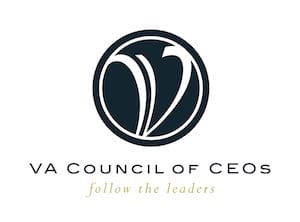
“We are truly thankful to be so well received in the Charlottesville market,” said Scot McRoberts, executive director, Virginia Council of CEOs. “Now it’s full steam ahead. We anticipate filling a third roundtable before the end of the year.”
The Council reports that, to date, of its 225 total membership, 21 Charlottesville-area CEOs have joined.
Entrepreneurs and CEOs join the Virginia Council of CEOs for a variety of reasons, but the primary reason is to participate in a Roundtable. Roundtables comprise eight to 10 individuals from non-competing industries who meet on a regular basis. Members follow a strict “no advice” protocol, and all information shared in the meetings is confidential.
“In general, Roundtable discussions tend to focus on how to be a better leader and anticipate what’s next, instead of being in the trenches with everyone else,” McRoberts explained. “The confidential, safe haven environment in our Roundtables is also a place where CEOs can share family or personal concerns, which greatly impact their performance as leaders.”
The opportunity to engage in peer-to-peer experience-sharing was the main reason new Charlottesville member John Woodell joined the Council in 2017.
“I joined to tap into and contribute to the wealth of knowledge shared by the numerous chief executives running similarly sized companies and facing similar issues,” the president of OpenSource Connections explained. “All the extras that the Council provides – such as the Annual Retreat, quarterly speakers and social events – have been part of a surprising and enriching experience.”
Woodell recently completed the required Roundtable Protocol Training and has had the first meeting with his new group. “I look forward to having a group of peers that face many of the same challenges I face and who, through sharing our experiences related to specific and pertinent issues, help support each other in finding real solutions to those challenges.”
About the Virginia Council of CEOs
The Virginia Council of CEOs is a non-profit association that serves CEOs of small and mid-sized businesses in Virginia. The Council was founded in 2000 to connect CEOs so that they can learn and grow together. With 225 members in Central Virginia at this time, the Council is forming new CEO Roundtables in other parts of the state. Learn more at https://www.vaceos.org.
Virginia Council of CEOs Names David R. Barrett Second Recipient of Charles E. McCabe Leadership Award
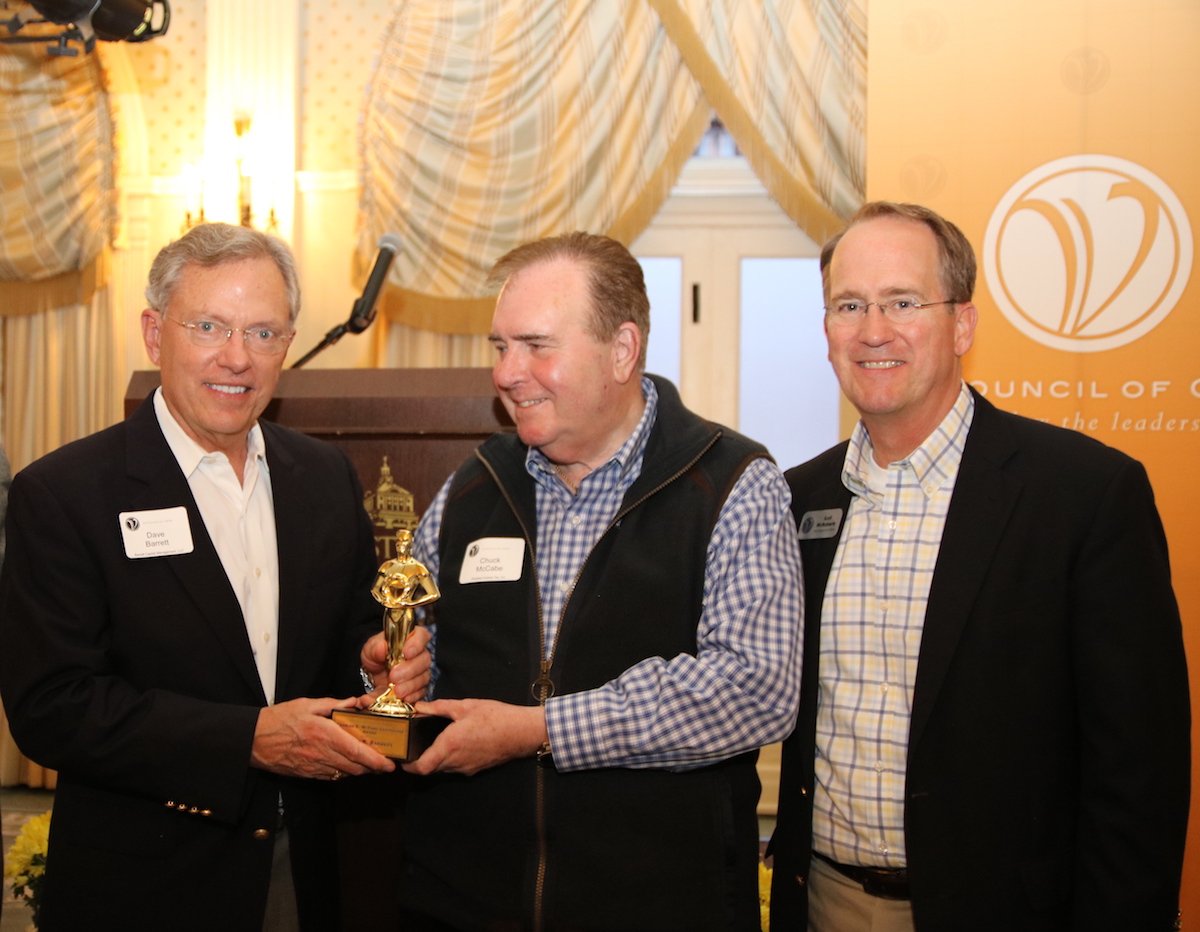
Pictured: David R. Barrett, Chuck McCabe, Scot McRoberts during 2018 McCabe Leadership Award presentation.
The Virginia Council of CEOs (VACEOs), a non-profit association serving 225 small and mid-sized business CEOs, announced today that David R. Barrett, President and CEO of Barrett Capital Management, LLC, has been awarded the Charles E. McCabe Leadership Award. Barrett was honored on Wednesday, April 25, 2018 during the 14th Annual VACEOs Retreat held at the Omni Homestead in Hot Springs, Virginia.
The Charles E. McCabe Leadership Award, presented by the Virginia Council of CEOs Board of Directors, recognizes VACEOs members who make significant leadership contributions to the Council. Chuck McCabe, CEO of Peoples Tax and The Income Tax School, was appropriately named as the first recipient of the award during the 2017 VACEOs Retreat.
David Barrett has been an active member of the Council since 2002. He served as Board Chairman from 2004-2005, and today he continues to serve on the advisory board and various committees.
Chuck McCabe and Mark Creery — current VACEOs Chair and CEO of Data Directions, Inc. — presented the award to David Barrett. Creery recognized Barrett’s desire to bring high quality professional training to roundtable participants and leaders and his unwavering commitment to grow the Council as reasons for Barrett’s appointment. “In 2004, he became Membership Chairman and almost single-handedly recruited 46 new members, more than doubling the number of CEOs in the Council,” said Creery during the presentation ceremony.
Barrett is also credited for the creation of an annual member retreat each year.
“He wondered why we didn’t have an annual ‘Retreat’ and set out imagining and planning our first CEO Retreat at Kingsmill Resort. Today, we enjoy the 14th iteration of that great idea,” Creery explained during his presentation.
“David Barrett is indeed a very special member,” said Scot McRoberts, Executive Director, Virginia Council of CEOs. Adding, “I am always glad to see a call from him come in, as I know I am about to be swept up by positive energy, a new idea or two, and probably an introduction to a new member prospect.”
“The first company I owned and operated . . . I didn’t have the Virginia Council of CEOs, and it was tough. I wish I’d had it,” said Barrett during his acceptance speech. Adding, “For the second company I’ve owned, and I still own, [The Council] has been a wealth to my family and children and to my grandchildren. It’s been great. I love the people in this room and working with Scot McRoberts. I can’t tell you how much I appreciate this. Thank you!”
About the Virginia Council of CEOs
The Virginia Council of CEOs is a non-profit association that serves CEOs of small and mid-sized businesses in Virginia. The Council was founded in 2000 to connect CEOs so that they can learn and grow together. With 225 members in Central Virginia at this time, the Council is forming new CEO Roundtables in other parts of the state. Learn more at http://www.vaceos.org.
Finding a Means for a Greater Good: Meet New VACEOs Member Dr. Anthony Duncan
When Dr. Anthony Duncan isn’t working hard on his new franchise business, he’s actively seeking ways to help at-risk youth in the Richmond area. His desire to make a difference led him to an opportunity with the well-known Mosquito Authority franchise, but it was his faith that propelled him to greater action.
While attending a formal presentation about the franchise opportunity, Duncan had a revelation. “I decided that if I wanted to make a strong impact with little worry about finances, then this franchise opportunity would allow me to really do that,” he explains.
Duncan purchased the Richmond Mosquito Authority territory in 2010, but subsequently found little time to work on the business. In 2011, he got a push from above that moved him forward.
“I was sitting at home wondering what I was doing. I went into deep prayer, asking God for direction. I heard God very clearly. I went later to bible study, and I told my pastor about it. He said, ‘You know what to do.’ I talked to my wife, then went to work and gave my two weeks’ notice.”
Since then, this entrepreneur, who admits he has “no business background whatsoever outside of running a private practice,” has expanded his business into Maryland and New York – and hopes to eventually do business in Puerto Rico, a place that’s particularly dear to his heart.
We sat down with him and asked about his background: “Why do you feel called to work with at-risk youth?” “Do you have to be crazy to want to be CEO?” And, “What do you dream about?” Here’s what this Richmond entrepreneur and new member of the VACEOs had to say.
Q: Your background includes a deep appreciation for psychology as well as franchise ownership. First, why psychology?
A: When I was an undergrad student, I met a professor who taught Intro to Psychology. His name was Dr. Adolph Brown III. Psychology really resonated with me – the attempt to understand behavior. Dr. Brown became my mentor. He told me I must get my doctorate, and so I did!
Q: After you received your doctorate, you worked with youth at the Department of Juvenile Justice. What is it about working with young adults that calls to you?
A: I come from a single-parent family background. I was raised by my mom, and I have two brothers. She worked really, really hard. I found myself going to college and becoming able to navigate through life successfully, and I really wanted to give back and work with individuals like me who come from single-parent families. I was at the Department of Justice for about five years. I really enjoyed that experience.
I’ve moved on from the Justice Department, but I’m still really focused on reaching this segment. Last year, we developed a mentoring program for 10 young adults in our office. I’m pretty tough – helping them understand that if you want to play in the marketplace, you need to have high standards. There’s no such thing as perfection, but you need to always strive for excellence and always want to get better.
Q: You’re a trained clinical psychologist who’s now a successful franchise owner. We have to ask: Do you have to be a little crazy or unbalanced to want to be an entrepreneur?
A: Well, we don’t use the word “crazy,” as it’s not a technical term! But if you think about the word “unbalanced” and being an entrepreneur, it’s hard to stay balanced. Obviously, we want to mitigate as much risk as possible, but we do take on a lot of risk – because that’s where the reward lies. Plus, there are only 24 hours in day. This whole idea of balance and being an entrepreneur is idealistic. The key, I’ve found, is to be cognizant and aware of the times I’m not engaged with my family.
Q: What are your business and personal goals? What do you dream about?
A: As I mentioned, I was raised by my mom, who is from Puerto Rico. I have this desire and obligation to make sure she is taken care of. That’s what keeps me up and keeps me going. I really want her to enjoy the fruits of my labor because of all the sacrifices she’s made for herself and her kids.
Q: Your mother is from Puerto Rico. Have you been there?
A: Yes! I dream about maybe one day retiring there and having a small mango farm. I was able to go back most recently after Hurricane Maria; I was compelled to go there and do something. I had the opportunity to take the team to the U.S. Virgin Islands to do mosquito control pro-bono work out there for a week. Then we went to Puerto Rico. Unfortunately, the infrastructure was not in place to do more pro-bono work, but we connected with FEMA and distributed food and water to the elderly in the Fajardo region. That was really fulfilling.”
Thanks for taking the time to meet with us, Anthony. And welcome to the Virginia Council of CEOs!

Dr. Anthony Duncan and his team help U.S. Virgin Islands and Puerto Rico victims of Hurricane Maria.
VACEOs Members Learn How to Ditch the Drama with Cy Wakeman
Got drama in your workplace? Gossip? Tattling? Employees constantly complaining about a colleague’s poor communication skills? Are you spending an inordinate amount of time dealing with unproductive behaviors like jealousy or resistance to change? If it seems like hours every day, you’re not wrong, and you’re not alone.
Cy Wakeman, researcher and New York Times bestselling author, has determined that employees spend nearly 2.5 hours a day – more than 17 hours a week, or 68 hours a month (816 hours a year!) – on negative behavior that results in drama in the workplace. And for the average business, that can add up to millions of dollars in wasted time and energy.
Earlier this year, Wakeman shared her research and conclusions with Virginia Council of CEOs (VACEOs) members and University of Richmond MBA graduates and alumni at a workshop co-sponsored by VACEOs in which she challenged attendees to think differently about leadership. Her view: Your role isn’t to motivate employees or find ways to engage them and keep them happy. “Drama is really emotional waste!” she exclaimed. “We need to modernize our leadership philosophy.”
“I’m here to tell you, the research I’ve done on drama will blow your mind,” Wakeman told the CEOs and future leaders in the room. “And there are businesses that are saving millions of dollars – actually actualizing on their bottom lines – by leading differently. That’s the good news. The bad news is that much of what we’ve been teaching you about leadership doesn’t work.”
“Your role is to help [employees] use good mental processes, live skillfully in current realities and deliver on organizational promises.” – Cy Wakefield
SOURCES OF DRAMA
Think about it: What if you could recapture those 816 hours a year, PER EMPLOYEE, and put that energy back into improved customer experience or a new revenue stream? Wakeman believes there are millions of dollars’ worth of potential for the average organization.
Not sure where to begin? First, realize that there only three ways drama can enter the workplace:
- You hired it;
- You keep it or enable it; or
- You ARE it.
“This waste,” says Wakeman , “is completely treatable.”
Wakeman’s research finds that ego issues – behaviors where a scorekeeper mentality and/or judgment are the culprits – are the greatest source of wasted time (30 percent) for employees and management. Other drama offenders that can drain your business’ potential are lack of accountability (23 percent) and resistance to change (13 percent).
Main Sources of Drama in the Workplace*
- Ego
- Lack of Accountability
- Lack of Buy-in
- Resistance to Change
- Lack of Earned Engagement
By the end of Wakeman’s day-long workshop, members and future leaders learned how to:
- lead differently to combat ego;
- foster accountability more effectively;
- create earned engagement and buy-in; and
- stop feeding into the drama.
“I’M NOT RESPONSIBLE FOR THE HAPPINESS OF MY COWORKERS?”
The day was full of valuable takeaways. Here’s what two VACEOs members had to say about their experience.
“… I left Cy’s talk no longer preoccupied with obstacles; I left focused on opportunities.” – Charlie Connell, Principal, Punch.
“Cy Wakeman’s ‘Reality-Based Leadership’ presentation is yet another example of a great educational opportunity I gained access to through my participation in the Council. I walked into the talk preoccupied with work, but it didn’t take her long to grab my attention.
‘I’m not responsible for the happiness of my coworkers’? ‘You can’t purchase buy-in’? These are things you know are true, but you still want the happiness and the buy-in. Cy explained other ways of thinking about these statements that made sense.
My favorite takeaway was combating ‘Why Can’t We’ statements with a ‘What If We Could?’ mindset. Again, a simple concept, but delivered in a way that was impactful for me. The segment about accountability and the fact that it cannot be enforced – it’s something that must be chosen – also hit home for me. All in all, I left Cy’s talk no longer preoccupied with obstacles; I left focused on opportunities,” says Charlie Connell, Principal, Punch.
The learning opportunities that are offered through VACEOs have been invaluable for my professional and personal growth.”– Jennifer Boyden, Chief Executive Officer, Heart Havens
“I was delighted to attend the presentation by Cy Wakeman! Aside from providing a straightforward, common-sense approach to workplace issues, she offered humor and personal examples. It’s frequently challenging to step away from daily operations, so I like to consider that my time is well spent. VACEOs offers these kinds of opportunities.
This workshop provided many take-away actions – not the least of which was implementing an SBAR Sheet to control the energy in the workplace and move from thought processes to ‘how to make it work.’
What’s SBAR?
S = present the situation in one sentence
B = share the relevant background
A = conduct an analysis/fact check
R = present recommendations (with an emphasis on the plural)
The learning opportunities that are offered through VACEOs have been invaluable for my professional and personal growth,” – Jennifer Boyden, Chief Executive Officer, Heart Havens.
HAVE A THIRST?
Do you have a thirst for knowledge that will help you grow your business? Do you need inspiration to help you get “unstuck”? VACEOs can help you work ON your business – not just in it. Our members are regularly exposed to inspiring presentations by local and national thought leaders. Topics range from management techniques to trends in technology and marketing, and much more.
Next up? “Future-Proofing Your Career” – a special knowledge-sharing and networking event for women co-sponsored the Robins School of Business, a VACEOs sponsor. Become a member today – or contact us about attending an event as a guest.
About Cy Wakeman
Cy Wakeman is a dynamic international keynote speaker, business consultant, New York Times bestselling author, and global thought leader with more than 25 years’ experience cultivating a revolutionary new approach to leadership. Grounded in reality, Wakeman’s philosophy has helped organizations and individuals all over the world learn to ditch the drama and turn excuses into results. Learn more.
*Cy Wakeman Presentation: “Reality-Based Leadership”; January 12, 2018; University of Richmond
2018 CEO Essential Program Begins February 6
Small business CEOs raved about our first CEO Essentials program, and we are pleased to announce that the Robins School of Business will again offer an educational program designed specifically around the topics that mean the most to you.
This winter’s “CEO Essentials” program includes classes on strategic planning, marketing, talent development, conflict management and much more.
Sign up for full, half or individual sessions. Register now! Classes begin February 6.
MORE ABOUT CEO ESSENTIALS
Presented by the Robins School of Business in partnership with Virginia Council of CEOs
About the 2018 sessions: All CEO Essentials sessions incorporate action learning and hands-on experience with content. Class size limited to 24 participants.
When: Tuesdays: 3–7 p.m.
February 6 – March 27
Where: Robins School of Business Executive Education, University of Richmond
Weekly Schedule:
- February 6: Strategic Planning: From Vision to Execution
- February 13: Using Financial Data for Business Decisions
- February 20: Marketing Your Business
- February 27: Talent Development: Coaching and Nurturing Employees/Succession Planning
- March 6: Achieving Results with and Through Others: Delegation and Accountability
- March 13: Effective Communication
- March 20: Managing Conflict
- March 27: Leading Effectively Through Change
Registration is limited to CEO and top-level leader(s) only; limit 3 individuals per company per year. Each full-program registration reserves a “seat”; organizations may choose whom to send to each session; limit 3 unique individuals.
Reserve your “CEO Essentials” seat for you and your executive team today.



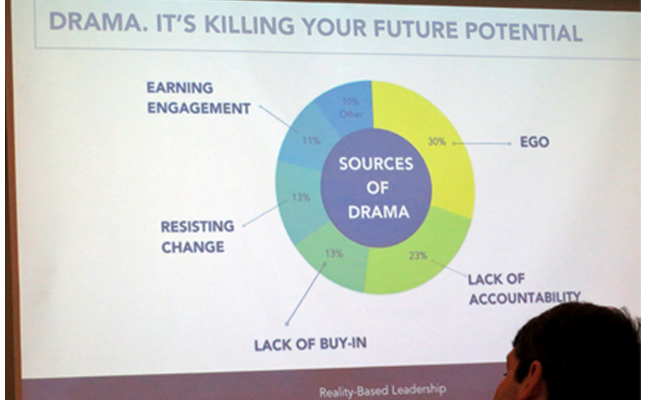
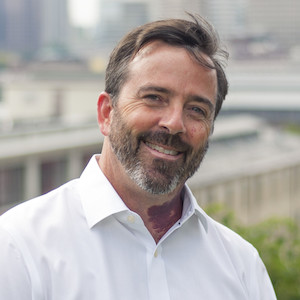
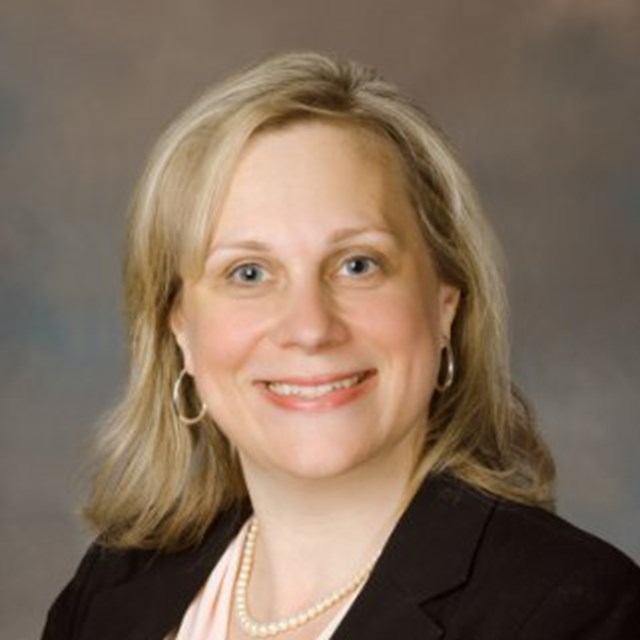

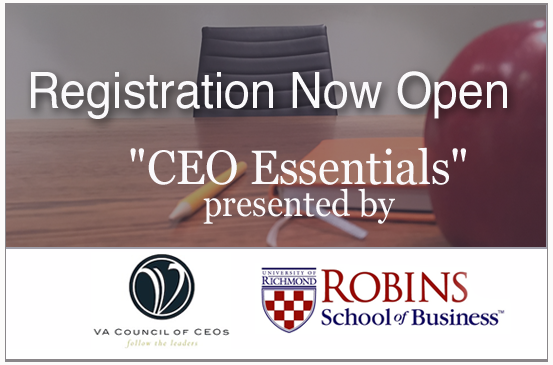

Recent Comments